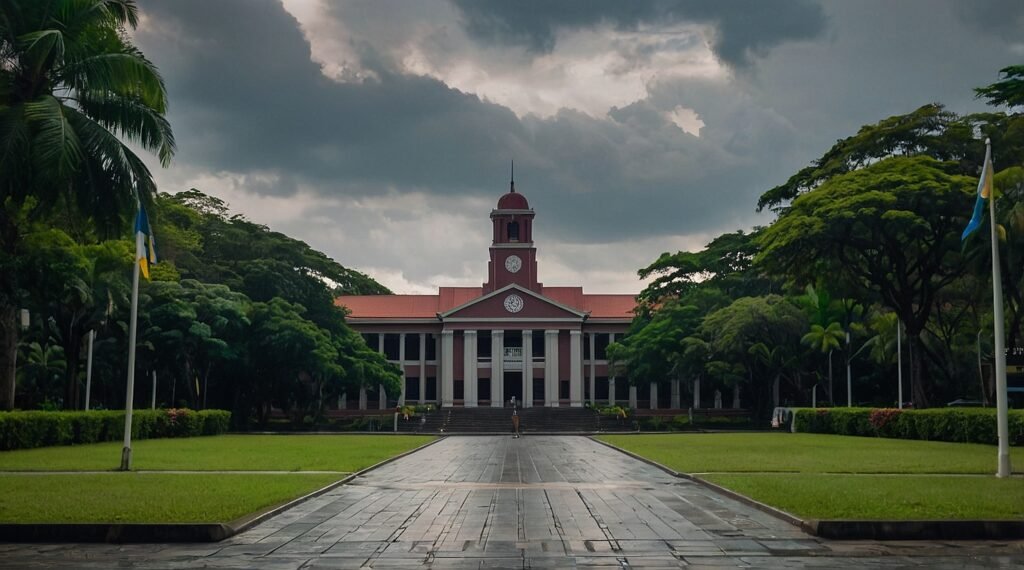The Filipino family is the cornerstone of Philippine society, serving as a fundamental unit that shapes individual identity, social relationships, and national culture. Deeply rooted in tradition and bolstered by strong cultural values, Filipino families are renowned for their close-knit structure and enduring intergenerational bonds. These family ties extend far beyond the nuclear unit, encompassing extended family members and even close friends who are often considered part of the family circle. The importance of family in Filipino culture cannot be overstated, as it influences nearly every aspect of life, from daily decision-making to long-term life choices. This blog post delves into the core values that define Filipino family dynamics, exploring the historical context, contemporary challenges, and the lasting impact of these values on Philippine society and beyond.
Historical Context of Filipino Family Values
Pre-colonial Influences
The foundations of Filipino family values can be traced back to pre-colonial times, when the Philippine archipelago was home to diverse indigenous cultures. These early societies were typically organized into barangays, small community units led by a datu or chieftain. Within these barangays, extended family networks played a crucial role in social organization, economic cooperation, and cultural preservation. The concept of “bayanihan,” or communal unity and cooperation, emerged from these early social structures and continues to influence Filipino family dynamics today.
Spanish Colonial Era
The arrival of Spanish colonizers in the 16th century brought significant changes to Filipino family structure and values. The introduction of Catholicism had a profound impact on family life, reinforcing patriarchal norms and emphasizing the sanctity of marriage. The Spanish colonial period also saw the emergence of the “ilustrado” class, educated Filipinos who often sent their children abroad for education, introducing new ideas about family and society. Despite these influences, many pre-colonial values persisted, blending with Catholic teachings to create a unique Filipino family culture.
American Colonial Period
The American colonial era, which began in 1898, brought further changes to Filipino family life. The introduction of public education and increased emphasis on English language proficiency opened up new opportunities for social mobility. This period also saw the beginning of large-scale Filipino migration to the United States, leading to the emergence of transnational families and the concept of “balikbayan” (returning overseas Filipinos). These developments added new dimensions to Filipino family values, emphasizing education and economic advancement while maintaining strong ties to cultural roots.
Core Filipino Family Values
Respect and Obedience (Paggalang at Pagsunod)
Respect for elders and authority figures is a fundamental aspect of Filipino family culture. Children are taught from a young age to show deference to their parents, grandparents, and older relatives. This respect is manifested in various ways, including using polite language, seeking permission before making decisions, and following the advice of elders. The practice of “pagmamano,” where younger family members show respect by bringing an elder’s hand to their forehead, is a visible symbol of this value.
Strong Family Ties (Malakas na Ugnayan ng Pamilya)
Filipino families are characterized by strong emotional bonds that persist throughout life. These ties extend beyond the nuclear family to include grandparents, aunts, uncles, cousins, and even close family friends. Regular family gatherings, shared meals, and frequent communication are common practices that reinforce these bonds. The concept of “kapwa,” or shared identity, further strengthens these ties by emphasizing the interconnectedness of family members.
Filial Piety (Utang na Loob)
Filial piety, or the obligation to care for one’s parents and elders, is a core value in Filipino families. This concept, known as “utang na loob” (debt of gratitude), extends beyond material support to include emotional care and respect. Adult children are expected to provide for their aging parents, often inviting them to live in their homes or providing financial assistance. This value ensures that the elderly are cared for within the family unit rather than in external institutions.
Educational Achievement
Education is highly valued in Filipino families, often seen as a path to social mobility and economic success. Parents typically prioritize their children’s education, making significant sacrifices to ensure they receive the best possible schooling. This emphasis on education extends to higher learning, with many Filipino families encouraging their children to pursue college degrees or professional qualifications.
Resilience and Adaptability
Filipino families are known for their resilience in the face of adversity. This trait is rooted in the country’s history of natural disasters, economic challenges, and political upheavals. Families often rely on each other for support during difficult times, pooling resources and providing emotional encouragement. This resilience is coupled with a remarkable adaptability, allowing Filipino families to thrive in diverse environments, both within the Philippines and abroad.
Intergenerational Dynamics in Filipino Families
Multigenerational Households
Multigenerational living arrangements are common in Filipino families, with grandparents, parents, and children often sharing the same home. This living situation fosters close relationships between generations and allows for the sharing of household responsibilities and childcare duties. According to a 2019 survey by the Philippine Statistics Authority, approximately 27% of Filipino households include extended family members.
| Household Composition | Percentage |
|---|---|
| Nuclear Family | 73% |
| Extended Family | 27% |
Role of Grandparents
Grandparents play a significant role in Filipino family life, often serving as secondary caregivers for their grandchildren. They contribute to the transmission of cultural values, traditions, and family history. In many cases, grandparents provide childcare support, allowing both parents to work outside the home. This arrangement not only strengthens intergenerational bonds but also contributes to the economic stability of the family unit.
Knowledge Transfer and Cultural Preservation
The close interaction between generations in Filipino families facilitates the transfer of knowledge, skills, and cultural practices. Older family members pass down traditional recipes, folk remedies, and cultural rituals to younger generations. This intergenerational exchange helps preserve Filipino heritage and ensures the continuity of cultural practices in an increasingly globalized world.
Contemporary Challenges to Filipino Family Values
Urbanization and Migration
The rapid urbanization of the Philippines and increasing internal and international migration have posed challenges to traditional family structures. As more Filipinos move to cities or abroad for work opportunities, extended family networks can become fragmented. However, Filipino families have shown remarkable adaptability in maintaining strong ties despite physical distance, often relying on technology to stay connected.
Changing Gender Roles
Traditional Filipino family values have historically been associated with clearly defined gender roles. However, contemporary Philippine society is experiencing a shift towards more egalitarian attitudes. Women are increasingly pursuing higher education and professional careers, leading to changes in household dynamics and decision-making processes. This evolution has led to both challenges and opportunities for Filipino families as they navigate changing societal expectations.
Economic Pressures
Economic challenges have put pressure on Filipino families, often necessitating both parents to work outside the home. This shift has led to changes in childcare arrangements and family dynamics. The phenomenon of overseas Filipino workers (OFWs) has also impacted family structures, with many parents working abroad to support their families financially. While this arrangement provides economic benefits, it can also strain family relationships and challenge traditional family roles.
Technological Influence
The rapid adoption of technology and social media has had a significant impact on Filipino family dynamics. While technology has enabled families to stay connected across distances, it has also introduced new challenges, such as decreased face-to-face interaction and potential generational divides in technology use. Filipino families are increasingly navigating the balance between leveraging technology to strengthen family bonds and maintaining meaningful personal connections.
Impact of Filipino Family Values on Society
Social Support Networks
The strong family ties characteristic of Filipino culture extend beyond individual families to create robust social support networks. These networks often function as informal safety nets, providing assistance during times of need, such as financial emergencies, health crises, or natural disasters. This communal approach to problem-solving and support contributes to the resilience of Filipino communities both in the Philippines and in diaspora populations around the world.
Economic Contributions
Filipino family values have significant economic implications, both at the household and national levels. The emphasis on education and professional achievement often leads to increased human capital and economic productivity. Additionally, the practice of financial support within extended families can help mitigate income inequality and provide a buffer against economic shocks.
Remittances from Overseas Filipino Workers (OFWs)
The strong sense of family obligation among Filipinos has fueled a significant remittance economy. According to the Bangko Sentral ng Pilipinas (Central Bank of the Philippines), OFW remittances reached $33.5 billion in 2019, accounting for approximately 9% of the country’s GDP. These remittances not only support individual families but also contribute significantly to the national economy.
| Year | OFW Remittances (in billions USD) | % of GDP |
|---|---|---|
| 2017 | 28.2 | 8.8% |
| 2018 | 30.1 | 9.0% |
| 2019 | 33.5 | 9.3% |
Cultural Diplomacy and Soft Power
Filipino family values have played a role in shaping the country’s international image and soft power. The reputation of Filipinos as caring, family-oriented individuals has contributed to the demand for Filipino workers in sectors such as healthcare, childcare, and hospitality around the world. This positive image has facilitated cultural exchange and strengthened diplomatic ties between the Philippines and other nations.
Preservation and Evolution of Filipino Family Values
Cultural Education Initiatives
Recognizing the importance of preserving traditional family values, various organizations and government agencies in the Philippines have implemented cultural education initiatives. These programs aim to teach younger generations about Filipino heritage, including family values, through school curricula, community events, and media campaigns. Such efforts help ensure the continuity of core values while allowing for their adaptation to contemporary contexts.
Legal and Policy Frameworks
The Philippine government has enacted various laws and policies aimed at supporting and strengthening Filipino families. These include the Family Code of the Philippines, which governs family law, and social welfare programs that provide support to vulnerable families. Recent legislative efforts have also focused on addressing the needs of OFW families and promoting work-life balance to support family cohesion.
Adaptation to Global Influences
As Filipino families become increasingly exposed to global influences, there is an ongoing process of value adaptation and negotiation. Many families are finding ways to integrate traditional values with more contemporary ideas about family life, gender equality, and individual autonomy. This evolution reflects the dynamic nature of Filipino culture and its ability to maintain core values while embracing change.
Conclusion
Filipino family values, characterized by strong ties, intergenerational bonds, and a deep sense of obligation to one another, continue to play a central role in Philippine society. These values have shown remarkable resilience in the face of historical changes, economic challenges, and global influences. While contemporary Filipino families face new challenges, the core principles of respect, solidarity, and mutual support remain strong.
The impact of these values extends far beyond individual families, shaping social structures, economic patterns, and even international relations. As the Philippines continues to navigate the complexities of the 21st century, Filipino family values serve as a source of strength, identity, and social cohesion. The ongoing evolution of these values demonstrates the adaptability of Filipino culture, ensuring that the essence of family remains at the heart of Filipino life while accommodating the realities of a changing world.
Understanding and appreciating the depth and significance of Filipino family values is crucial not only for those within the culture but also for anyone seeking to engage with Filipino communities, whether in personal relationships, business dealings, or policy-making. As globalization brings diverse cultures into closer contact, the Filipino model of strong family ties and intergenerational bonds offers valuable insights into alternative approaches to social organization and support systems.
Disclaimer: This blog post is based on general research and may not reflect the experiences of all Filipino families. Cultural practices and values can vary widely among different regions, socioeconomic groups, and individual families within the Philippines. While every effort has been made to ensure the accuracy of the information presented, readers are encouraged to consider this as a starting point for understanding Filipino family values rather than a definitive account. If you notice any inaccuracies or have additional insights to share, please contact us so we can update and improve the content promptly.




